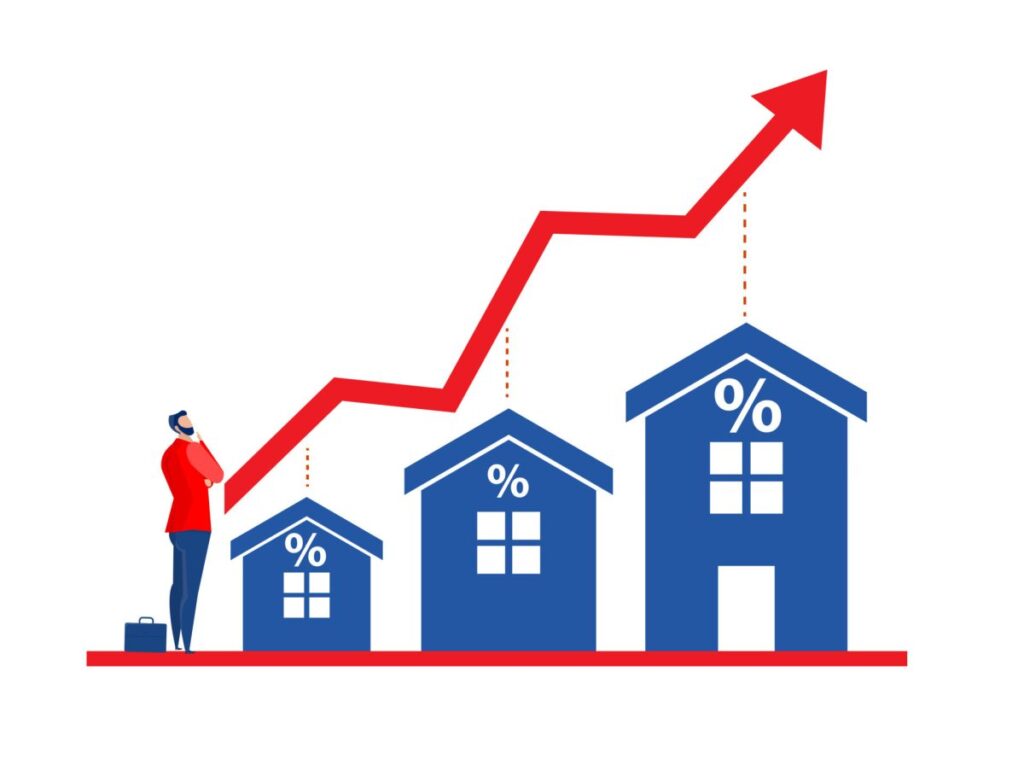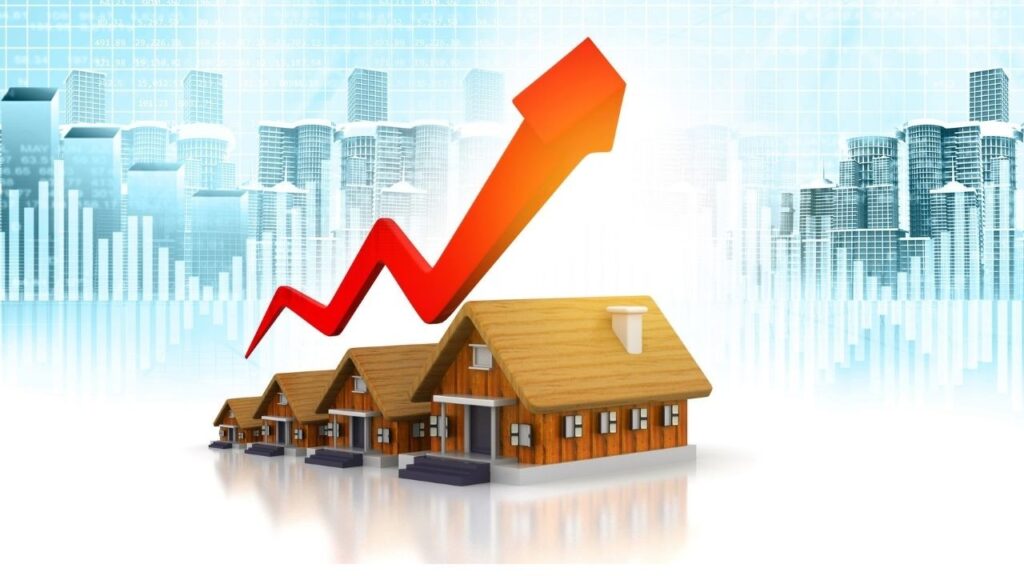The Impact of Rising Interest Rates on the Housing Market
Rising interest rates are a hot topic in the financial world, and their impact on the housing market is significant. Interest rates play a crucial role in determining mortgage rates, which directly affect the affordability of homes for potential buyers. As rates rise, the cost of borrowing increases, leading to shifts in buyer behavior, housing demand, and overall market conditions. In this article, we’ll explore how rising interest rates impact the housing market, discuss what this means for buyers and sellers, and provide strategies to navigate the changing landscape.
- 1. Understanding Interest Rates and the Housing Market
- 2. How Rising Interest Rates Affect Homebuyers
- 3. The Effect on Home Sellers
- 4. Implications for Real Estate Investors
- 5. Strategies for Buyers and Sellers in a Rising Rate Market
- Conclusion
- FAQs
- 1. How do rising interest rates affect mortgage rates?
- 2. What is purchasing power, and how does it relate to interest rates?
- 3. How can sellers adapt to a slower market caused by rising interest rates?
- 4. Are there opportunities for real estate investors in a rising rate environment?
- 5. What strategies can homebuyers use to manage rising interest rates?

1. Understanding Interest Rates and the Housing Market
Interest rates are the cost of borrowing money, typically expressed as a percentage of the loan amount. They are influenced by a variety of factors, including central bank policies, inflation, and economic conditions. In the housing market, interest rates are closely tied to mortgage rates, which determine how much it costs to finance a home. When interest rates rise, mortgage rates tend to follow suit, impacting the affordability of homes and overall market dynamics.
2. How Rising Interest Rates Affect Homebuyers
Rising interest rates have a direct impact on homebuyers, primarily through increased borrowing costs and reduced purchasing power.
Increased Mortgage Rates
As interest rates rise, so do mortgage rates. Higher mortgage rates mean higher monthly payments for borrowers, which can make homes less affordable. For example, a 1% increase in mortgage rates can add hundreds of dollars to a monthly mortgage payment, depending on the loan amount. This can deter potential buyers from entering the market or cause them to reconsider their budget.
Reduced Purchasing Power
When mortgage rates increase, homebuyers’ purchasing power decreases. This means they may not be able to afford as much house as they could when rates were lower. As a result, buyers may need to adjust their expectations, consider smaller homes, or look in less expensive neighborhoods. Reduced purchasing power can also lead to fewer buyers in the market, impacting overall demand.
3. The Effect on Home Sellers
Home sellers are also affected by rising interest rates, particularly in terms of market activity and pricing strategies.
Slower Market Activity
Higher interest rates can lead to slower market activity as potential buyers become hesitant to purchase homes due to increased borrowing costs. This can result in longer listing times and fewer offers for sellers. A slower market may require sellers to adjust their expectations and be more flexible with pricing.
Pricing Adjustments
In a rising rate environment, sellers may need to adjust their pricing strategies to attract buyers. This could mean pricing homes more competitively or being open to negotiations. Some sellers may also offer incentives, such as covering closing costs, to make their properties more appealing.

4. Implications for Real Estate Investors
Real estate investors must also navigate the challenges and opportunities presented by rising interest rates.
Changing Investment Strategies
Rising interest rates can affect the profitability of real estate investments, particularly those that rely on financing. Investors may need to reassess their strategies, focusing on properties with strong cash flow or considering alternative investment options such as real estate investment trusts (REITs).
Opportunities in a Rising Rate Environment
While rising interest rates present challenges, they can also create opportunities for savvy investors. For example, a cooling housing market may lead to less competition and more favorable deals for investors looking to acquire properties at a discount.
5. Strategies for Buyers and Sellers in a Rising Rate Market
Navigating a rising rate environment requires different strategies for buyers and sellers to succeed.
Tips for Buyers
- Lock in Rates Early: If you’re planning to buy a home, consider locking in your mortgage rate early to avoid potential rate increases.
- Improve Your Credit Score: A higher credit score can help you qualify for better mortgage rates, reducing your overall borrowing costs.
- Consider Adjustable-Rate Mortgages (ARMs): ARMs may offer lower initial rates, which can be advantageous if you plan to sell or refinance before the rate adjusts.
Advice for Sellers
- Be Realistic with Pricing: Price your home competitively to attract buyers in a slower market.
- Enhance Your Home’s Appeal: Invest in minor repairs, staging, and curb appeal to make your home stand out.
- Offer Incentives: Consider offering incentives such as covering closing costs or including appliances to make your home more attractive to buyers.

Conclusion
Rising interest rates can significantly impact the housing market, affecting buyers, sellers, and investors alike. By understanding how these changes influence market dynamics, you can better navigate the challenges and seize opportunities. Whether you’re a buyer looking to secure a mortgage or a seller aiming to attract offers, being prepared and adaptable is key to success in a rising rate environment.
FAQs
1. How do rising interest rates affect mortgage rates?
Rising interest rates generally lead to higher mortgage rates, increasing the cost of borrowing and making homes less affordable for buyers.
2. What is purchasing power, and how does it relate to interest rates?
Purchasing power refers to the amount of house a buyer can afford. When interest rates rise, purchasing power decreases because higher rates result in higher monthly mortgage payments.
3. How can sellers adapt to a slower market caused by rising interest rates?
Sellers can adapt by pricing their homes competitively, enhancing the home’s appeal through staging and repairs, and offering incentives to attract buyers.
4. Are there opportunities for real estate investors in a rising rate environment?
Yes, investors may find opportunities in a cooling market with less competition, potentially acquiring properties at a discount or focusing on properties with strong cash flow.
5. What strategies can homebuyers use to manage rising interest rates?
Homebuyers can lock in rates early, improve their credit scores, and consider adjustable-rate mortgages (ARMs) to manage rising interest rates effectively.
